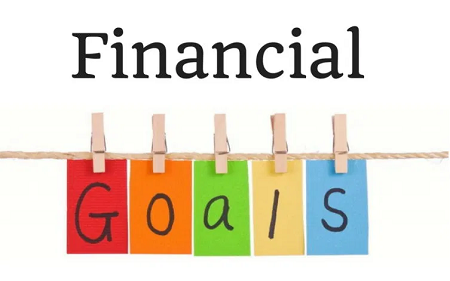
07 Jul 9 Simple Tips to Achieve Financial Freedom
For many, financial security can feel like an unattainable dream. To put it in perspective, a whopping 29 percent of Americans don’t have any savings at all.
However, financial security is a relative term, which means it’s possible for anyone to become financially secure. Financial security or Financial Freedom refers to the peace of mind felt when we aren’t worried about money. Often, this means having enough income to comfortably cover expenses, being debt-free, and having savings to cover emergencies.
Some people believe you need to be a millionaire or even a multi-millionaire to be financially secure. The truth is you don’t need a mansion, sports car, or private jet to be financially secure – you don’t even need to have paid off your mortgage. You can just have your job and a good side hustle if the income is steady.
Ultimately, financial security just means that you’re in control of your money, and you’re not worried about paying the bills or covering an emergency.
Still, financial security means different things for different people. So, here are tips to help you achieve financial security in your life. Don’t forget that the Employee Mindset creates Financial Insecurity. The best start to achieving financial freedom is to leave the employee mindset behind and adopt an entrepreneur mindset.
The steps to becoming financially secure aren’t complicated. However, they do require persistence, hard work, and dedication.
1. Evaluate Your Situation
Before you can become financially secure, you need to gain some clarity.
To do this, start by taking inventory. How much money do you make, and how much do you have in savings and investments? How much debt do you carry, and what are the interest rates? Finally, how much are your expenses each month?
Write everything down.
Doing this can take some time, so take it slow, and if you need to, break up the task into smaller ones. Once you’ve got a clear picture of your financial situation, you’ll be able to improve it.
2. Live Below Your Means
A crucial part of financial security management is living below your means. This means that you always spend less than you make.
Even the famous investor, Warren Buffett, lives modestly despite a net worth of roughly $78.9 billion. In fact, Buffet still lives in a house in Omaha that he bought in 1958 for $31,500.
This means that Buffet didn’t fall into the trap of “lifestyle creep” – this is when your income increases and your spending increases as well, leaving you with no savings.
So, create a budget, and make sure that you always live below your means.
3. Create Financial Goals

Have a think about your financial goals – what do you need to feel financially secure? Perhaps you’d like to pay off credit card debt, build an emergency fund, or save some money each month for retirement.
Whatever it is, write it down. Then, work out how much money you need to achieve each of your goals.
When you’ve defined all your goals, put them in order of priority – which ones are most important? Why? Perhaps getting an emergency fund is your top priority, or maybe you want to save up a deposit to buy a house. Try using a budget app to keep track of all incoming and outgoing money to ensure you are sticking to your budget.
4. Make a Financial Security Plan
A goal without a plan is just a wish. So, once you’ve written down all your goals, you need to create a financial security plan.
Dig deeper into the details.
For example, if you want to save up a $1,000 emergency fund, how long will it take you to save it, and how much money do you need to save each month? What would prevent you from reaching this goal, and how can you avoid it?
Create a plan for each of your top-priority goals.
5. Reduce Your Expenses
Once you’ve created a financial security plan, it’s likely you’ll need to reduce your expenses to free up some money.
Depending on how much you need to save to reach your goals, you may need to cut back on small luxury items or large expenses.
When trying to save money, focus on consistent wins over time. For example, saving $100 by purchasing a cheaper sofa is great, but also look for ways to save an extra $100 every month.
6. Pay Off Your Debt
Whether it’s student loans or credit cards, roughly three out of four millennials in the U.S. are in debt, with an average balance of $36,000.
If you have debts that you want to pay off to achieve financial security, there are many schools of thought. This is the method I recommend:
The avalanche method suggests that you pay off the debt with the largest interest rate first, then work your way down to the debt with the lowest interest rate. This avalanche method allows you to pay the least amount of money in interest overall. This isn’t the quickest method but will keep you from throwing money away paying interest.
7. Save, Save, and Save Some More
Saving consistently is a vital part of achieving financial security.
If you’re not sure where to start when it comes to saving, consider using Senator Elizabeth Warren’s 50/30/20 rule. Here how the rule suggests you spend your money:
- 50% on needs, such as housing, utilities, and groceries.
- 40% on wants, such as shopping and hobbies.
- 20% on savings, such as retirement plans and emergency funds.
Whatever you do, start saving!
8. Earn More Money

Another way to increase your financial security is to find ways to earn more money. For example, you could negotiate your salary, look for a higher paid job, or start a side hustle and keep your full time job.
Common side hustle ideas include starting a drop shipping business, becoming an affiliate marketer, and starting a blog.
9. Be Consistent

Finally, remember that financial security management never stops – consistency is the name of the game. To create long-term financial security, you need to focus on building sustainable habits.
Jim Rohn, the entrepreneur and motivational speaker, said, “Success is neither magical nor mysterious. Success is the natural consequence of consistently applying basic fundamentals.”
Bottom Line: How to Achieve Financial Security
Financial security refers to the peace of mind experienced when you have relatively few worries about money. For many people, this often entails:
- Being debt-free
- Being in control of personal finances
- Feeling prepared for financial emergencies
- Steadily increasing financial security over time
If you’re wondering whether or not you can achieve financial security, listen to the entrepreneur Henry Ford: “Whether you think you can or think you can’t, you’re right.”
Ready to Start Your Side Hustle? We Can Help!
Start your side hustle today with this FREE ebook!

No Comments on 9 Simple Tips to Achieve Financial Freedom